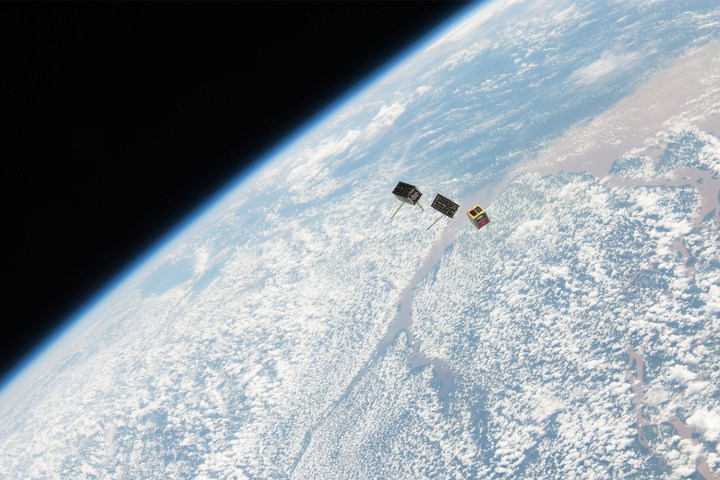
It’s been a long time coming. Galileo, named of course after the Italian engineer and astronomer, was initially conceived in 1999 as a privately funded enterprise. After a series of failed investment rounds threatened to can the project, the EU agreed to take charge in 2008 with what turned out to be an $11 billion deployment (it was initially expected to cost $3.1 billion).
A little background on GPS: The U.S. government launched its system 1973, and it became fully operational in 1995. The mesh of 24 to 32 satellites operates independent of any internet connection, and they each beam geolocation and time data to Earth. Once at least four satellites are in view of a receiver, it’s able to calculate coordinates.
On a technical level, Galileo works the same way. About 18 satellites orbit the Earth, providing positioning data to cell phones, personal computers, and other electronics. But the EU claims that compared to current GPS systems, Galileo reduces the amount of time it takes to pinpoint GPS distress beacons and delivers a much higher degree of location accuracy. It can pinpoint an object within one meter compared to U.S. receivers’ 5 meters, and will eventually offer even greater precision via a premium service.
But it isn’t there yet. Galileo’s current iteration leans on the U.S. GPS system to provide global coverage — EU hopes for it to become self-reliant by 2020 with the launch of six additional satellites. And technical issues continue to plague it. One satellite stopped working this week, and two others ended up in the wrong orbit.
The EU believes that a more precise global positioning system will become essential to European economies. It estimates that almost 10 percent of the continent’s GDP comes from devices and services that rely on some form of satellite navigation, and projects that number will increase to 30 percent by 2030.
It isn’t the only one placing bets on global positioning. Russia is building its own network, Russian Global Navigation Satellite System (GLONASS), as is China (BeiDou Navigation Satellite System), Japan (Quasi-Zenith Satellite System), and India (Regional Navigation Satellite System).
The U.S. isn’t resting on its current advantage, either. The next generation of GPS, dubbed GPS IIIA, calls for the deployment of 32 new satellites and includes a new, more powerful signal transmission (L2C, L1C, and L5) capable of improving accuracy to within 1 meter. The $5.5 billion project was projected to launch in 2014, but delays pushed deployment to 2017.

